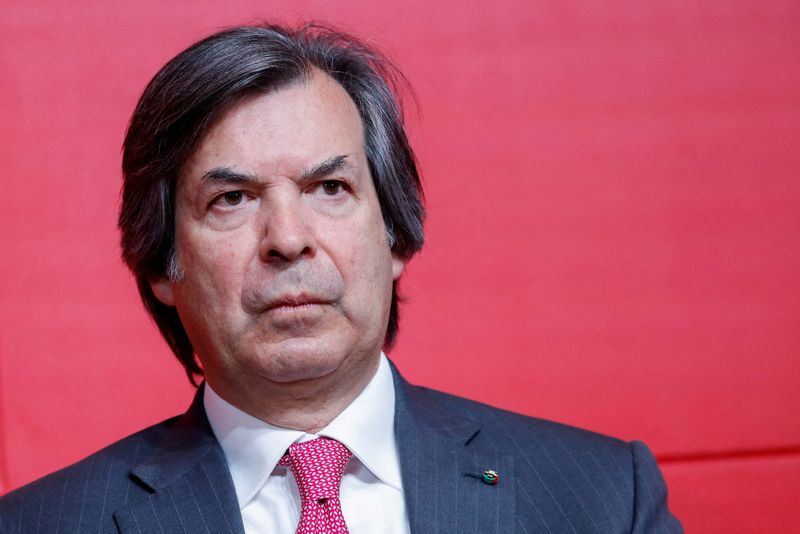By Valentina Za
MILAN (Reuters) -Intesa Sanpaolo Chief Executive Carlo Messina on Tuesday criticised as "almost pathological" an excessive use of share buybacks to reward investors in Europe, after Italy's biggest bank announced the buyback markets had been expecting.
Messina also said he thought it was safer to provision against loan losses above a certain threshold, even if there was no immediate need.
Reporting 2023 results on Tuesday, Intesa said it would buy its own shares for an amount that, based on Reuters calculations, approaches 1.7 billion euros.
That complements its ordinary 70% cash dividend payout.
Intesa's dividend policy, one of the most generous in Europe, contrasts with the equally ambitious payout strategy of UniCredit where CEO Andrea Orcel has favoured share buybacks to please its fund shareholders.
UniCredit on Monday said it would pay out 100% of its 2023 profits, mostly via share buybacks. UniCredit's excess capital is higher than Intesa's.
Intesa has among its investors Italian not-for-profit banking foundations, while UniCredit is owned by international funds.
Messina told a press conference Intesa's foundation shareholders needed the cash for charitable activities, while share buybacks are better for fund investors.
"Share buybacks shouldn't be part of the regular's dividend policy, at least for Intesa, the board will decide each year how to best use the cash," he said.
Messina said he expected the use of buybacks in bank's distribution policies would normalise as they run out of excess cash.
"If you want to be a bank CEO for many years like I've done and you want to go on for many more years, you need to be clear that your company is not a cow to be milked," Messina said.
He said the same applied to the strategy on loan loss provisions.

UniCredit's cost of risk, which measures provisions in relation to total loans, was exceptionally low last year at 12 basis points, one third of Intesa's.
"I think 30 basis points is a physiological level for cost of risk. Even if the asset quality is such that it could be lower we don't ever go below that, we find something to provision, that is what one ought to do when earnings are strong," he said.